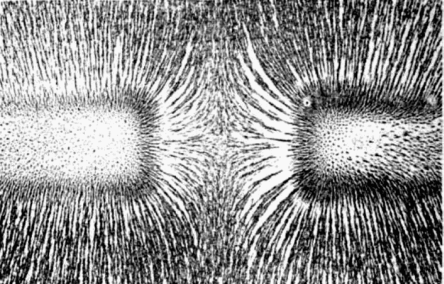Frankenstein, as a novel, science-fiction story, piece of literature, etc… sucks. OK, so maybe that was a little harsh. In all reality, all of the culture that has sprung up because of “Frankenstein” probably overinflated my expectations for the book anyway. To put it bluntly, all “sweetened-condensed:” she took way too long to say way too little. A writer for the Edinburgh Magazine put it quite nicely, “For a jeu d’espirit [(a light-hearted display of wit or cleverness)] it is somewhat too long, grave, and laborious.” ("Edinburgh Magazine" 195) In a more suitable length (a.k.a. severely edited to about 20-30 pages) it would have been a really good story. That was all the content there was! So to stretch it out to 150 or so pages was a bit much to go through. Also, her handling of all things scientific and medical shows signs of obvious ignorance.
In her detailing of the creation of The Creation (seriously, could there not have been worked a name into the story?) there is an attempt at being detailed and specific, but “since no mortal could say how such a thing should be done, is slurred over in a few hasty but ghastly paragraphs.” (Haweis 200) Frankenstein speaks of times where he “dabbled among the unhallowed damps of the grave, or tortured the living animal to animate the lifeless clay” (Shelley 32) but no clarification is given on the what or why of his pursuits. Yet that is the feel for many parts of the story. In this one point, where it is really quite remote from reality, and creativity and imagination can reign, even a few medical blunders would have been quite unnoticeable, and the details would have gone far to solidify the premise of the story and fulfill the reader’s curiosity. Not only in this place but also in every other point in the story which could have captured the audience’s attention (and there were many such points), the story was glossed over, giving it a “summarized” feel, while every single conversation, ignoring of course The Creation’s monologue, and inconsequential details spanned entire pages, characters taking 6-10 lines to say what could have been said in but 2 or 3 short sentences.
For example, four pages are spent speaking of The Creation’s first few days until he arrives at the French family’s home. The Creation, at the end of the story, has a four page monologue detailing his feelings over the course of the story. The dreaded wedding night, which was ominously threatened much earlier in the story and becomes the crux for Frankenstein’s pursuit of The Creation, takes hardly a page and a half! Surely such an important event should have been drawn out? The very next scene with Frankenstein and the town magistrate is just as long! To top it off, there is really no point for that scene either. From there, Frankenstein’s entire chase of The Creation, with all its trials and troubles, is summed up in six pages, most of which are Frankenstein’s reflections and cursings. Granted, the author showed a remarkable vocabulary, and made an exhaustive use of it throughout the novel, but it makes each of the characters detached from the others: far from having conversations one with another, it becomes one monologue followed by another.
In a parallel, the scenery depicted in “Frankenstein” is also very detailed, but yet again, a bit overdone. A writer for the Gentleman’s Magazine from the era that “Frankenstein was written speaks of this matter quite succinctly: “…many parts of it are strikingly good, and the description of the scenery is excellent.… If we mistake not, this [writer] was a Noble Poet.” (“Gentleman’s Magazine” 196-97) Indeed, “Frankenstein” much more closely resembles poetry than prose in this way. For a story such as this, there was too much time spent detailing scenery and dialog and too little given to actions and storyline.
There were a few coherent and consistent themes that I noticed. However, there is one thing which stands out to make the reader puzzle, “What was the point?” The author makes Frankenstein into an idiot despite his genius and a coward despite his gallantry. For a guy who supposedly figured out how to reanimate a corpse, he can’t plan for a hill of beans. Another critic, from Knight’s Quarterly, writes:
It is utterly inconceivable also, that he should have let the monster (as he is somewhat unfairly called) escape; ̶ one of the thoughts which must, one would imagine, have been uppermost in his mind during his labours [sic], would have been the instructing his creature intellectually as he had formed him physically. (“Knight’s Quarterly 198-99)
You can see it by his lack of planning as to what he would do with The Creation upon its completion while in the process of making it. His stupidity is presented again in his many lapses of sanity and coherence under conditions which, while not a walk in the rose garden, hardly merit such reaction! After The Creation’s creation and eventual education, he seesaws back and forth in his decisions on what to do with it, resolving on one course only to sway and set his sights on another. His failures to put an end to the creature on his many opportunities (largely due to his lack of planning) all perpetuate his misery unnecessarily. When it comes down to saving a veritable member of his own family, and the call comes to standing up for Justine at her life or death trial, and he can save her life, he chickens out. Said he, “A thousand times rather would I have confessed myself guilty of the crime ascribed to Justine; but… such a declaration would have been considered the ravings of a madman…” (Shelley 52) He feared being called mad over saving her life. If that wasn’t sorry enough to witness, just look to his abysmal actions on his wedding night. Here he was, armed to the teeth supposedly, but obviously untrained in those weapons’ use, and he is unable to protect his wife, much less even wound the creature. Again, the story shows evidence of failure both to be adequately prepared and to think things through. The list goes on and on. This is contrasted by The Creation’s educated and eloquent manner during his monologue (although Frankenstein spends plenty of time trying to get a concept out of his own mouth as well), The Creation’s cunning, well executed plans, and Justine’s courage and unshakeable morality when faced with the executioner’s hand. Frankenstein seems to be one who has noble thoughts and intents, but blunders every one of his actions into a wound for his family and friends.
Finally, in conclusion, when the reader reaches the end of this ghastly tale, what consolation prize is offered to the weary travelers? Frankenstein, the ill fated, bumbling protagonist of our tale, died, having left his labors and pursuit unfinished. His whole life was a failure, and he never did experience lasting joy. There is nothing in this tale which we may readily see as a lesson to learn from him, and it certainly doesn’t satisfy or soothe our minds. The Creation makes a cameo and, surprising to all who behold it, mourns his creator’s death. The Creation as well finds no happiness in life and leaves, as he states, to burn his body to ash. Though we get to know his story as well, there is nothing in it either that we can point to for the soothing of our minds, either for happiness or learning. So what was Shelley’s purpose?
As we are told, the ideas which sparked this tale are the proceedings of a vacation gone sour. In her own words, given in the preface of the story, Mary Shelley writes,
I passed the summer of 1816 in the environs of Geneva. The season was cold and rainy, and in the evenings we crowded around a blazing wood fire, and occasionally amused ourselves with some German stories of ghosts, which happened to fall in our hands. These tails excited in us a playful desire of imitation. Two other friends…and myself agreed to write each a story, founded on some supernatural occurrence.
The weather, however, suddenly became serene; and my two friends left me on a journey among the Alps, and lost, in the magnificent scenes which they present, all memory of their ghostly visions. The following tale is the only one which has been completed. (Shelley 6)
To Mary Shelley, her “Frankenstein” was to be nothing more than a ghost story, and in this respect, many of the baffling questions raised by the style of it are answered. No ghost story has a moral or a point; it is all just calculated to scare. However, “Frankenstein” doesn’t really scare, as the primary villain, the evil spook or “ghost” of this story, shows empathetic feelings. We can feel sorry for both characters, and neither one are possessed of an unknowable or illogical malice. As John Croker of the Quarterly Review explained:
It cannot be denied that this is nonsense ̶ but it is nonsense decked out with circumstances and clothed in language highly terrific; it is, indeed, “ ̶ a tail told by an ideot [sic] full of sound and fury, signifying nothing ̶ ” but still there is something tremendous in the unmeaning hollowness of its sound, and the vague obscurity of its images. (Croker 190)
It’s pretty good for a teenager’s first try, but when you get down to it… it’s just an overwritten ghost story.
Works Cited:
Croker, John. Quarterly Review Jan 1818. 379-85. Print.
Edinburgh Magazine. Mar 1818: 249-53. Print.
Gentleman's Magazine Apr 1818. 334-35. Print.
Haweis, Hugh. "Introduction to the Routledge World library Edition." Frankenstein. 1886. Print.
Knight's Quarterly Aug-Nov 1824. 195-99. Print.
Shelley, Mary. Frankenstein. Critical. New York: W. W. Norton & Company, 1996. Print.





_Irish_Frankenstein.jpg)

